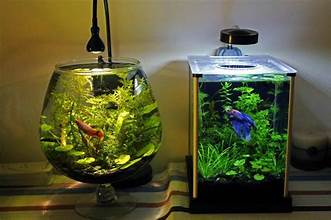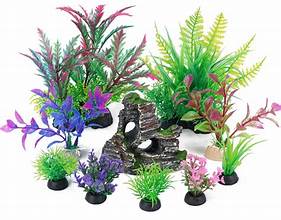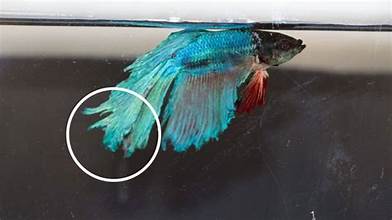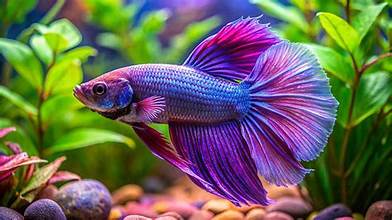Betta fish, or Siamese fighting fish, are among the most popular pet fish due to their vibrant colors, unique personalities, and uncomplicated care requirements. Each Betta has its own distinct character, from shy and reserved to bold and curious. This guide will cover everything a prospective Betta owner should know to ensure a happy, healthy fish and to learn about the fascinating personality of their Betta.
1. Choosing the Right Betta
Before purchasing a Betta, you should decide whether you want a male or female. Males are more colorful and have longer fins, but they can be aggressive, especially toward other males. Females are less flashy but can be kept together in sorority tanks if appropriately managed.
When selecting a Betta, look for the following signs of good health:
- Vibrant, rich colors
- Clear, undamaged fins
- Active swimming behavior
- No visible white spots, torn fins, or signs of lethargy
2. Setting Up the Perfect Betta Tank
Despite common misconceptions, Betta fish cannot thrive in small bowls. They require an adequately maintained aquarium to live long, healthy lives.
Tank Size

- The minimum recommended tank size for a Betta is 5 gallons. Larger tanks provide a more stable environment, which is crucial for the health and well-being of your fish. They also allow for better water quality and more space for your Betta to swim and explore.
Filtration & Heating
- Bettas are tropical fish and require a heater to maintain a temperature between 76-82°F.
- A gentle filter is recommended to keep the water clean, but avoid strong currents as Bettas are not strong swimmers.
Water Quality & Parameters
- Maintain a pH level between 6.5 and 7.5.
- Ammonia and nitrites should always be at zero ppm, and nitrates should be below 20 ppm.
- Use a water conditioner to remove chlorine and harmful chemicals from tap water.
- Perform weekly water changes (25-50%) to keep the tank clean.
Substrate & Decorations

- Bettas enjoy soft, smooth gravel or sand as a substrate.
- Provide plenty of hiding spots, such as caves, live plants, or silk plants (avoid plastic plants as they can tear fins).
- Floating Betta logs or hammocks allow them to rest near the surface.
3. Betta Fish Diet & Feeding
Bettas are carnivores and require a high-protein diet. Feeding them the right foods ensures proper health and vibrant colors.
Best Foods for Bettas
- High-quality Betta pellets (staple diet)
- Frozen or live foods such as bloodworms, daphnia, and brine shrimp
- Occasional freeze-dried treats (ensure they are rehydrated to avoid bloating)
Feeding schedules
- Feed once or twice daily in small portions.
- Only give what your Betta can eat in two minutes.
- Once a week, consider a fasting day to aid digestion and prevent bloating.
4. Betta Tank Mates: Who Can Live With Bettas?
Betta fish, especially males, are territorial but can coexist with particular tank mates if chosen carefully.
Good Tank Mates
- Small, non-aggressive fish like Corydoras catfish, Kuhli loaches, and small Tetras
- Peaceful bottom dwellers like snails and shrimp
Tank Mates to Avoid
- Other male Bettas (never keep two males together)
- Fin-nipping fish like Tiger Barbs or Serpae Tetras
- Large or aggressive fish that may bully or stress the Betta
5. Common Health Issues & Prevention
Understanding common health problems in Betta fish will help you keep your pet in top condition.
Common Betta Diseases

- Fin Rot:
If poor water conditions cause it, treat it with clean water and aquarium salt.
- Ich (White Spot Disease):
Parasitic infection; treated with increased temperature and medication.
- Dropsy:
A sign of organ failure is often fatal but can sometimes be managed with antibiotics.
- Swim Bladder Disorder:
It can be caused by overfeeding or constipation. To treat it, fast and eat a small piece of cooked pea.
Prevention Tips
- Keep water clean and properly cycled.
- Maintain a healthy diet.
- Avoid overcrowding and stress.
- Quarantine new fish before introducing them to an established tank.
6. Enrichment & Betta Behavior
Bettas are intelligent and can be trained to perform simple tricks like jumping for food or swimming through hoops.
Ways to Keep Your Betta Entertained
- Use a mirror occasionally to stimulate natural flaring behavior (but only for a few minutes).
- Rearrange decorations to create a new environment.
- Offer interactive toys such as floating rings or tunnels.
- Train your Betta to follow your finger or jump for food.
7. Lifespan & Long-Term Care
With proper care, Betta fish can live 3-5 years, sometimes longer. Ensuring good water quality, a balanced diet, and regular health checks, such as observing their behavior and appearance, will contribute to a long, happy life for your Betta. This regular attention will show your Betta that you care and are committed to their well-being.
Final Tips for New Betta Owners
- Research before buying:
Understanding their needs prevents common mistakes.
- Invest in a proper setup:
A well-maintained tank means a healthier Betta.
- Monitor water conditions regularly:
Clean water is the key to a thriving Betta.
- Enjoy the process:
Bettas have unique personalities, making them excellent pets!
Owning a Betta fish can be a truly rewarding journey when done correctly. By following this guide, you’ll not only provide your Betta with the best possible care but also embark on a fascinating journey of discovery and joy. You’ll enjoy the beauty of this unique fish and the bond you’ll form with it for years to come!




